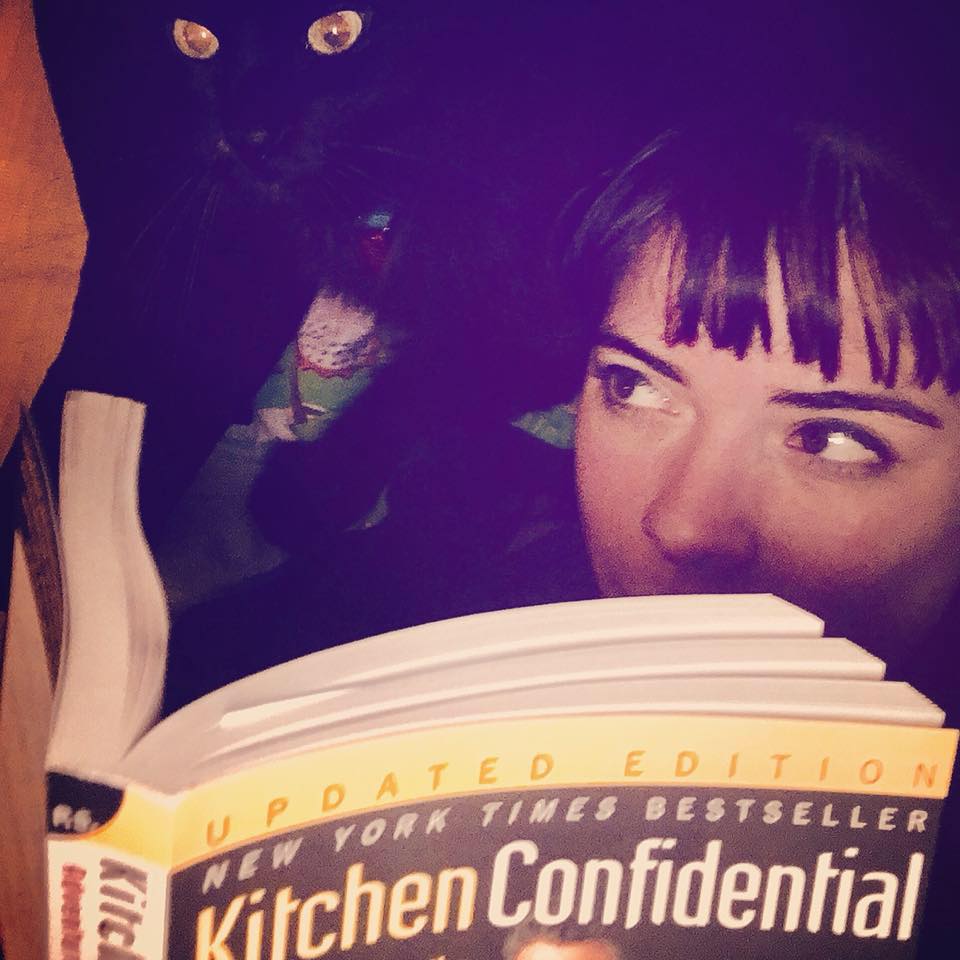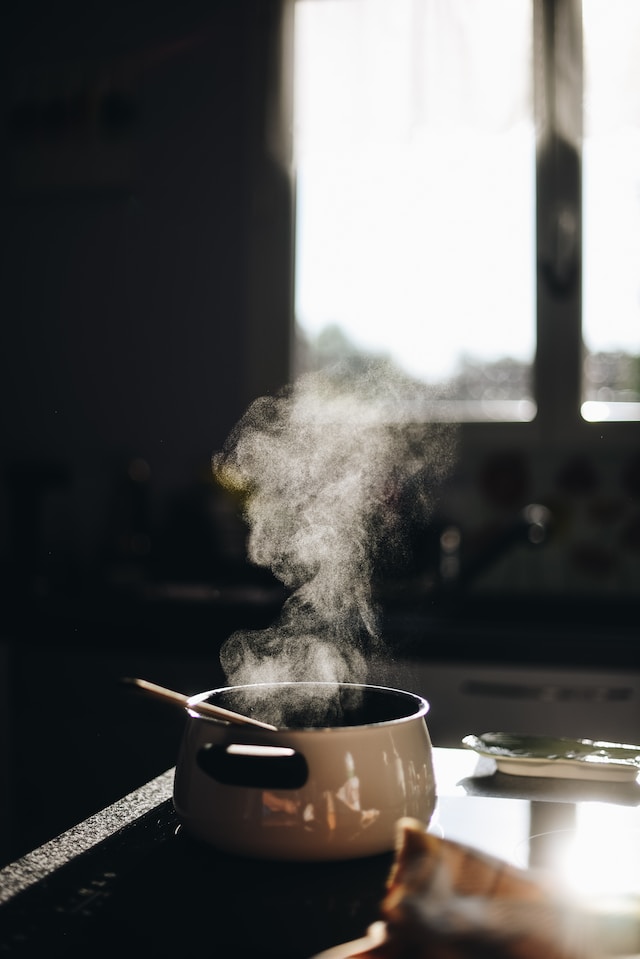My Love
“You can really taste the hint of cotuit,” says Maisie, the mother of the man you are supposed to be dating.
You don’t ask what cotuit means, your mind distracted, clinging to near-words like they are life rafts. Conduit, intuit, can’t do it, want it. Your mind likes lists, loves them most of the time, but it’s hard to listen to his parents when you’re counting and sounding off, rhyming and shifting the words around your mind. There are faint echoes of gone to it and onto his. Maisie asks how you’re enjoying dinner and you have to bite your tongue, can’t say went to it.
Well, you went to dinner, your life already lost, the world you used to inhabit barely accessible. Sometimes, when you are alone in the tub at night, and he has passed out from working all day—tugging the neck tie off and groaning like he’s been lifting weights all day, hasn’t sweat at all, still smells like Clive’s Heart—slaps you once on the ass before flipping his pale stomach onto the satin sheets, soon he’s snoring like a little kid. So you’re alone in the tub, there aren’t candles but there could be, if you didn’t feel so nauseous asking him for money. There’s something about taking what doesn’t belong to you without permission, suits you. He wants to buy you something expensive? You don’t want to wear it, but this makes him angry, and he leaves lilac circles on your shoulders from where he gripped you too hard. You bruise easily, you tell yourself. But later, you sift through his drawer and steal a hundred from the roll, a bad habit leftover from when his father grew up without, hiding loose coins in socks, but without what, you wonder. His parents have so much. A yacht the exact shade of freshwater dolphins named Daphne. A screen door properly installed so it doesn’t slap when it closes. Two German shepherds with leather collars. Clean bathrooms, marble countertops, more than enough food in the cabinets. You stole the soap, shaped like a seashell, and now its rosy scent fills the tup.
Soon, dawn. The restaurant is open too late, the servers all perky and their skin taught, they take double and triple espresso shots in the kitchen, smoke cigarettes in the alleyway and compare tips from their large parties. It’s the kind of restaurant where you shouldn’t have to haggle guests for more money. It’s the kind of restaurant where you are called a guest, someone takes your coat for you but you hesitate, certain once they take away your shell you’ll be revealed, a beetle and not a woman, with terrible wings and a wailing, empty stomach. Instead, the host compliments your dress and your partner gets in his face, asking with a stern tone, show them their table at once, thank you for complimenting my wife.
But you aren’t his wife, not yet at least, though his parents question him, when is he going to propose, why haven’t they started talking about children yet?
He doesn’t respond, leans towards you and begins explaining contuits are a specific type of oyster and the meat is so soft it’s like a silk pillowcase. This makes you gag but you pretend it’s a cough, allow yourself a single laugh afterwards, pressing your neck against his. For a brief moment, your skin sticks. You think, this is it. You’re going to be stuck with him forever. Then a server arrives with another round of drinks and behind her trail the food runners with their appetizers and he relinquishes your neck; you are free to live another day, only slightly tethered.
Maisie is tall, taller than you. She has broad shoulders she used to hate as a child, dark brown hair she’s let turn grey at the corners of her face. She only has crows feet and hundreds, if not thousands, of freckles. She’s the kind of mother you would have avoided when you were a teenager, staring at her feet as you ask for water. She’s the kind of mother who would have grasped your face in her fingers and pinched, look at us, dear, don’t want to be misunderstood, do we?
You have a moonstone ring on your finger but it’s the wrong finger, not the marriage finger, not the important finger, not the finger with the nail sharp enough to be mistaken for a fox tooth or a needle, you are losing all your years with the wrong stone, didn’t your mother teach you anything?
You sip your martini on the rocks, decide you hate lemons, do nothing with the ghostly pale rind.
“Amber, can we just say again how happy we are you two have met? Steven was telling us you had a lot of problems in college.” Steven’s father lowers his voice. You wonder why he doesn’t pick up the candle and use it as a jack-o-lantern, for effect. You had a lot of problems, do you want candy? Will that make you happy, finally? Women these days. Or whatever you heard him muttering to his wife when he thought you weren’t paying attention.
“Yes,” you manage to say. You grasp Steven’s leg. He doesn’t seem to mind the strength and you begin to wonder if you have any muscle left in your body or if it’s all turned to acorn shells. Are you the gorgeous young thing you once were? Are you feeling a cut inside yourself, are you menstruating at the table?
“If you’ll excuse me,” you tell them.
“Was it something I said?” he jokes but it’s not meant to be funny.
“She’s just going to freshen up before dinner,” Steven comments, grabbing your waist.
You’ve been sick since you were a teenager. His fingers hurt your waist, even this grab, light jab, barely the grab of a man who wants to eat you for dinner and climb inside your body so he can seduce and eat other women. Not even that kind of grab, but still, it hurts. You’ve tried to explain to him you have pain issues, pain every day, even brushing up against a counter by accident sends knifes into your stomach, knocks the wind out of you for a few seconds. He slaps you on the shoulder, reminds you you’ll be fine.
In the bathroom, you curse. Your period wasn’t supposed to come until tomorrow, then again, when has it ever been on time? You knew you were sick when you were thirteen, menstruating for weeks at a time, telling your mother about the blood clots.
“Everyone gets those,” she’d said, swatting the air. “It could be so much worse. At least you don’t have cramps.”
But you were constantly nauseous, and later, after your legs stopped working and you had to take a taxi twenty feet to the hospital, the nurses fussed over your arms, explained words like anemia and iron. No one tells you iron supplements make you sick without food. There were so many days spent hugging the toilet, wishing to be spirited into another life. You remind yourself this isn’t a story about fairies and wishes and saving. This is about axes and men raised by wolves to become wolves themselves.
A small voice distracts you; you almost trip, having pulled your nylons off and there they rest on the floor like snakeskin, you are turning your underwear inside-out, grateful the seats at the table are dark red.
“You okay?” she asks again.
“I guess so. Come what may,” you mutter, dabbing at the blood on your hands.
Without another word she reaches beneath the stall and hands you a tampon. It is the perfect tampon, not made of cardboard, soft enough it doesn’t make you gag when you use it, the kind of tampon that calls forth a sigh of relief. You stuff your nylons in the trash and exit the stall.
There is no one else in the bathroom, though you can’t recall hearing the door open and close.
You wash your hands eight times. The problem was never numbers, you only know sensation. More than three feels clean. Move beyond five if you’re nervous, scrub particles from your nails. Your too-sharp nail, cocaine nail, is still intact. Your moonstone ring catches the light and shines like buttermilk. You miss mood rings and rainbow umbrellas, ripped jeans and pretending not to be hungry so other people’s parents decide to parent you, feeding you so much you wouldn’t need to eat for almost two days. This dress is made of expensive material. You’re unsure what kind of material, all you know is it doesn’t itch or cause red marks on your skin. You look like a healthy woman in the immaculate mirror. You could be Mary, your dress is so blue, your face so confused and tired, earrings round and amber like sticky buns. Did Mary like sticky buns? Would she have eaten them if she’d been offered sweetness?
You check your watch—a Christmas gift—and notice only a minute has gone by. Which makes no sense, there were so many actions within those sixty seconds, the nylons and the tampon, the talking and the washing. Since no time has passed, barely any time occurs, you decide to head to the kitchen where you will find the mysterious tampon bestower and thank her. You know she isn’t a guest for her server apron was on the floor, its strings tired and frayed at the ends.
When you were a server your guests used to report you and your friends if they saw your apron on the floor, if it wasn’t folded into a neat rectangle around your notebook, discretely tucked into the host stand or left unsupervised on the bathroom counter. Mustn’t touch your money until you’ve finished taking care of your table. No counting, lounging, eating, or drinking until the last guest has left, the floors have been mopped, and the doors are locked.
The kitchen staff are lounging. They are on their phones, whispering to each other, watching videos. Someone is in charge of the oven and the potatoes. Someone else is in charge of sauce. Everyone is waiting for the executive chef to return with the lobsters. They barely look up when you enter, and one of the cooks, young, close to your height when you’re in heels, gestures without giving you the barest glance.
“She’s in the back,” he says, fishing in his pocket for a cigarette and a lighter. “You’re welcome to meet us out back after you’re done.”
He flashes two cigarettes between knotted fingers, scarred fingers. Fingers mirroring her own.
She nods but he isn’t looking, still distracted by the video his friend is muttering and pointing at.
You find her—the chef, the woman from the bathroom, the generous tampon bringer—crouched in the second walk-in freezer. She is wearing an apron, which is curious for a chef, and you notice the cloth is bulging with objects. Christmas ornaments, an unopened pack of Winston lights, a vanilla cigarillo you can smell even with the wrapper on. There is a race car, there is a stuffed monkey hanging its paws over the edge, there is a brand new wine key. Forks and knives, a picnic blanket, a dog bone.
“My darling,” she says upon finding you there.
She hugs you but doesn’t touch you with her hands.
“Lobster,” she explains, returning to her seat on the floor. She plucks several blue-black lobsters from a bin and places them in a pot. This, too, she has withdrawn from her server’s apron.
“I’ve never seen a chef wear an apron before,” you comment.
“It was a gift, my love.”
Her eyes are storms, raindrops, clear as green apples, murky turtle bodies sleeping in mud, flashes of red around her pupil and your first thought is devil.
“Come, we’ve barely got any time left and you need to help me prepare your dinner,” she says.
You oblige. After all, who are you to deny this woman? Who are you to deny when someone—anyone—asks you to complete a task for them. Obedience is not natural, it is formed, created like gemstones under pressure. You do what she says, fearful there will be consequences if not. Perhaps she will ask for her gift back, or tie the discarded nylons around your neck. Steven would tell you you’re having intrusive thoughts again even though he once smacked the dinner table so hard after a server brought him salt and not pepper, sent the drinks flying, put a crack in his porcelain plate, they had to send his ribeye back, things were black and blue after that, perfect Philadelphia style meat.
You went home that night, wilted and no longer pretty, you were still learning about him those first few days, and after every outburst he had such nice things to say. Took your heart straight out of your chest with his now-gentle hands, there-there-ing you until you calmed, called you skittish like a horse, promised he’d take you out somewhere the next day for waffles coated in gold leafs.
The chef hands you a uniform. It is starchy and white, so crisp it reminds you of a Michelin star. You feel like the reward, all pointed and quick, nuanced and gauzy, you could blow sugar bubbles if you wanted, you could macerate stone fruits, handle the rush, know you’ll never be weeded in this coat. You’re such a pretty little thing, you hear him telling you. He didn’t even notice the blood.
Into the pot go lamb bones and lamb meat. She hands you lobster claws and you want to object but don’t. You want to explain to her yes, you know she is an executive, she’s at the top of the food chain, she’s the one making the orders and keeping the restaurant afloat, but seafood and meat don’t go well together. Still, into the pot goes roux, fox hairs so golden and orange you mistake them for tangerine peels, an octopus tendril, what appears to be a human finger but is actually a witchy navy-hued grape. The noise in your head has been turned down, you are daydreaming about burying Steven beneath your bed, taking all his expensive shirts and pants and wearing them to work, you will be Steven in a suit and tie, you will learn what it means to be a hardworking man.
“Steady your hand.”
She touches your wrist and shows you how to hold the wooden spoon.
“Yes, chef,” you find yourself saying.
This makes her happy. In your old restaurant, everyone made fun of you for being polite. Every heard and yes, chef was met with disdain. Just tell me you got the order, yes or no, write 86 on the board and quit talking in front of the line.
It’s the kind of menstruation that makes the whole building smell like blood. Even your aura is murky, your mind swamp-like. With every stir you imagine Steven. Banister’s edge, failing to grip, bones poking out of his flesh. How about the edge of the beautiful dolphin yacht, pink like baby gums, falling off the edge, Johnny Walker blue still in hand? On the balcony of his parent’s country home, boasting about eating all the shrimp cocktails without getting sick. Falling onto the patio, his body turning into human confetti.
“That’s right,” she is saying. “Let your heart take over your body. Scoop the broth into bowls, gently. We don’t want to spill a single drop.”
You carry a single bowl, shining and dark blue, on a piece of wood. The spoons are already at the table. Behind you trails Chef and two cooks. Steven is surprised you’ve made soup but his parents are luxuriously drunk and exclaiming what a keeper you are.
“She even remembered peppers and mushrooms, just the way I like it,” his father is exclaiming, slurping up carrot disks and clear celery circles, everything round as an eye. You are nothing but a moment of entertainment in their big lives.
Steven eats hesitantly. He thinks you are going to poison him. But Chef doesn’t seem like the killing type. She doesn’t seem to know what it means to be brought to the forest and destroyed year after year, until you don’t recognize your body anymore. When Steven asked you what happened during your youth you recall shrugging.
“What happens to everyone,” you’d said and he nodded like he understood, but really, he was just another starving man with too many teeth and not enough forks and knives.
You finish dinner. You don’t eat the soup, as instructed by Chef. She has brought you a single slice of cheesecake with macerated raspberries and graham cracker crust. You immediately form a crush on her.
When you enter the car with Steven, he is so drunk he gets into the backseat. You’ve never driven a stick shift before but if you don’t try, he’ll hurt you. So you try. You drive until you reach the edge of the forest, still yards away from his parent’s house, never liked the word mansion, it sounds so ugly, like hard candy, like sugarless bread.
You abandon your almost-husband in his car. His body is still sleeping peacefully, and it will continue to do so for millennia. His car will grow thick with weeds, vines, ivy both poisonous and not. His parents’ car will form coral deposits on the hood, an old oak tree through the center of the console.
You enter his house, feet scarred from heels, jewelry discarded. You unzip your dress in his floor-length mirror and put on his clothes. You sleep that night so softly, and when you wake the next morning your body still hurts, like it always does, but this time not from him.

Sam Moe is the recipient of a 2023 St. Joe Community Foundation Poetry Fellowship from Longleaf Writers Conference. Her work has appeared or is forthcoming from Whale Road Review, The Indianapolis Review, Sundog Lit, and others. Her poetry book Heart Weeds is out from Alien Buddha Press (Sept. ’22) and her chapbook Grief Birds is out from Bullshit Lit (Apr. ’23). Her full-length Cicatrizing the Daughters is forthcoming from FlowerSong Press.



